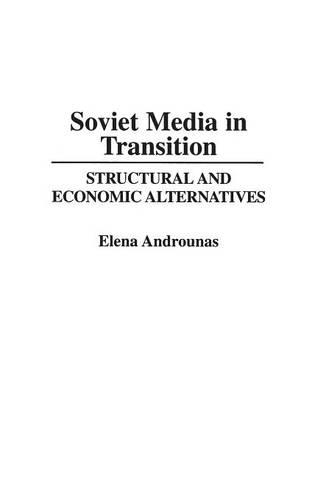
Soviet Media in Transition: Structural and Economic Alternatives
(Hardback)
Publishing Details
Soviet Media in Transition: Structural and Economic Alternatives
By (Author) Elena Androunas
Bloomsbury Publishing PLC
Praeger Publishers Inc
21st September 1993
United States
Classifications
Tertiary Education
Non Fiction
302.230947
Physical Properties
Hardback
184
Description
This study, written by a Russian expert on the media, analyzes the unique role of the mass media--television and the press--in the social, political, and economic changes that began in the Soviet Union in 1985 under the name of perestroika and culminated recently in the country's dissolution. In addition, the work examines the restructuring of the media, from mouthpiece of the Communist Party to independent commentator. By viewing the struggle for control of the media as reflective of the country's political turmoil, the author provides a fascinating insight into the ways and means of Russian politics.
Reviews
In what is perhaps the first book on Russian mass media to appear since the political upheavals of the past several years, a Russian communications consultant with extensive American experience writes a broadly descriptive analysis of both print and broadcast media amidst dramatic transition. His conclusion is made stronger by the fact that unlike most previous "Western" books on the Soviet scene, this is written by a Russian insider who can see change at home and what still needs to be done..-Choice
"In what is perhaps the first book on Russian mass media to appear since the political upheavals of the past several years, a Russian communications consultant with extensive American experience writes a broadly descriptive analysis of both print and broadcast media amidst dramatic transition. His conclusion is made stronger by the fact that unlike most previous "Western" books on the Soviet scene, this is written by a Russian insider who can see change at home and what still needs to be done.."-Choice
Author Bio
ELENA ANDROUNAS, who holds a Ph.D. in the history of journalism from Moscow University, is the owner and director of Comcon, a communications consulting company in Moscow. Previously, she has held positions at Moscow University, the Annenberg School of Communications of the University of Pennsylvania, and the Freedom Forum Media Studies Center at Columbia University.
